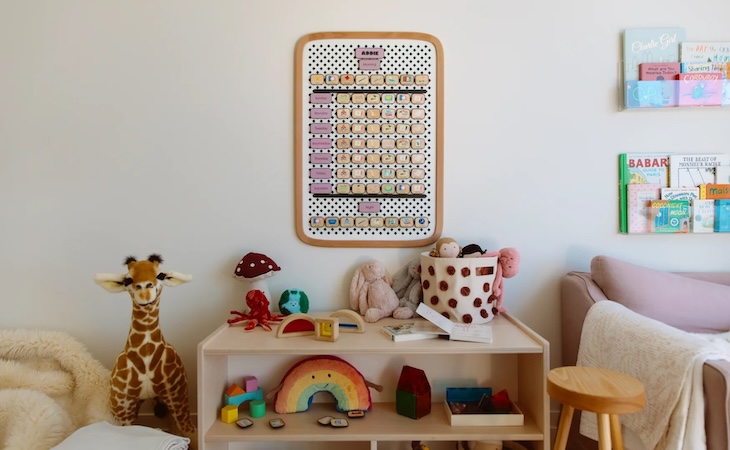Packing up a duffel bag with sunblock, bug spray, a baseball mitt, and a pack of UNO cards and boarding that bus for sleepaway camp can be a life-changing experience for many kids. Not only will they make new friends and learn how to properly tie-dye an old T-shirt, it may also be their very first experience sleeping away from Mom and Dad (and away from their cozy bed with their favorite fluffy quilt).
While most summer camps have upped their game from the thin mattresses and scratchy Army-surplus blankets you remember from your childhood, they can still pose some major snoozing challenges for first-timers trying to sleep at camp. “You know your kid, and you probably have good sense of whether he or she will be the one who has problems falling asleep in camp,” says Robin Goldstein, PhD, a professor of human development at Johns Hopkins University and author of The Parenting Bible. So as soon as you make your summer plans, start gently and calmly preparing your child for the excitement—and challenge—of the “sleep” part of sleepaway camp.
Here’s some advice from the experts.
Sleep at camp challenge: Sleeping in a strange bed for the first time
Your child has probably had experience sleeping on an unfamiliar mattress at a relative’s house, a sleepover party, or a hotel, but spending the night in a bunk in the woods surrounded by a dozen or more snoring kids can be startling at first. The most important thing you can do is to make sure your child feels like her bed is a slice of home, says Debby Shriber, who has seen it all in her 18 years as a camp director (she is currently director of Crane Lake Camp, in West Stockbridge, Mass.). “It’s super-important for kids to bring something comforting from home with them, whether that’s a stuffed animal, a favorite blanket, or a pillow,” she says, adding that there’s no need to worry that anyone will make fun of your child’s fuzzy pink rabbit. “Boy or girl, old or young, everyone brings something to make their bed cozy.”
Shriber also recommends making sure the bed itself is as comfy as possible by packing an egg-crate mattress topper to add a cushy layer to a potentially lumpy or hard camp mattress, and picking out a fun new sheet set and comforter. “Don’t bring expensive bedding and duvet covers to camp—you never know what will happen to them,” she says. “But going shopping before camp and letting your child choose bedding with a design they love will make them feel excited about sleeping in their camp bed.”
Sleep at camp challenge: Feeling homesick
The first few nights, there may be a few sniffles as your child gets used to climbing into bed without a hug from mom or dad. Also, because the kids are so busy running around and doing fun activities during the day, bedtime is naturally the moment when any latent homesickness will hit the hardest.
Before camp starts, give your child strategies to deal with any nighttime loneliness, advises Goldstein. “When you discuss this, never use the word homesick, just say, ‘It’s perfectly normal to miss home,'” Goldstein says. “Talk about it with a calm presence, and tell them that if they are feeling a little sad at bedtime to think about three things they loved doing that day, and three things they look forward to doing the following day.” She adds that some kids like to keep a photo of their family (and pets!) by the bed to help them sleep better at camp and to remind them of home, but for other kids, it can make them even more homesick. “They can keep the photo tucked in a book with a 3×5 card that says, ‘I’m safe and I’m going to feel brave,’ and look at it when they need a little boost.”
Sleep at camp challenge: Getting used to the dark (or the light)
At home, your child can adjust the light in her bedroom to the exact amount she needs to fall asleep. But at camp, she is suddenly sharing her space with several other children and counselors, who may have very different opinions of what is the best ratio of illumination. “Some kids like to sleep in pitch-black, and others prefer a night light, especially the younger ones,” says Shriber. She points out that most camps will have a night light in the bunk for younger campers, or will leave the light on in the bathroom with the door slightly open. On the other hand, If you have a kid who needs total darkness to sleep, Shriber recommends packing a sleep mask.
Sleep at camp challenge: Unfamiliar noises
Sleeping at camp means dealing with an endless symphony of other children snoring, tossing, and turning; birds tweeting; crickets chirping; and other unfamiliar sounds. Some kids find they enjoy the special rhythms of this nighttime orchestra, says Shriber, while others find it distracting and disturbing. Packing a few pairs of noise-blocking earplugs is one way to handle the issue. Or your child might prefer to bring an iPod and listen to music or a book on tape before falling asleep.
Sleep at camp challenge: Falling asleep alone
The single most important thing you can do to help your child sleep soundly at camp is to make sure he or she has a completely independent sleep routine. That process may take several weeks or months, says Shriber. “If your child is used to crawling into bed with you if she can’t sleep, you have to work that out well before camp starts,” she says. “Of course, counselors are there in the bunk to help if someone has a bad dream, but they can’t have every kid in the bunk crawling into bed with them!”
If your child is excited about sleepaway camp, that’s the perfect motivation to start working on a routine. Come up with a few easy steps that she can follow both at home and away (brush teeth, read a book, hug her stuffed monkey, think of what she’s grateful for that day), and practice every night until she can tuck herself happily into bed on her own.
Bunk beds are a great option for children. Check out our guide to buying bunk beds for advice on choosing one that’s right for your kids.




